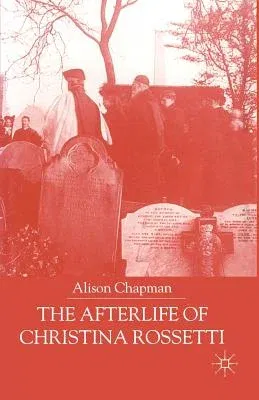A Chapman
(Author)The Afterlife of Christina Rossetti (2000)Paperback - 2000, 1 January 2000

Qty
1
Turbo
Ships in 2 - 3 days
In Stock
Free Delivery
Cash on Delivery
15 Days
Free Returns
Secure Checkout
Print Length
213 pages
Language
English
Publisher
Palgrave MacMillan
Date Published
1 Jan 2000
ISBN-10
134940506X
ISBN-13
9781349405060
Description
Product Details
Author:
Book Edition:
2000
Book Format:
Paperback
Country of Origin:
NL
Date Published:
1 January 2000
Dimensions:
21.59 x
13.97 x
1.35 cm
ISBN-10:
134940506X
ISBN-13:
9781349405060
Language:
English
Location:
London
Pages:
213
Publisher:
Weight:
299.37 gm

